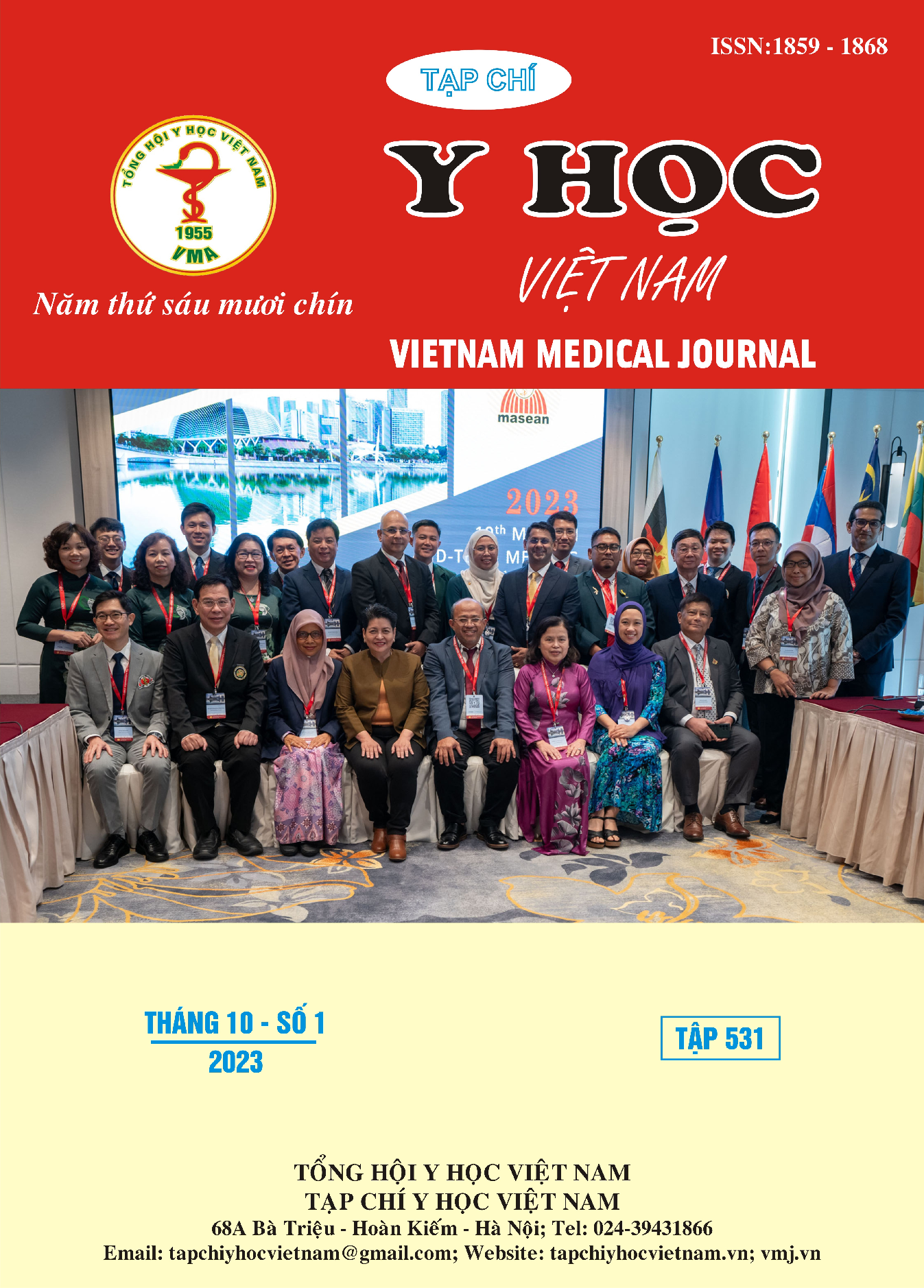EVALUATION OF TREATMENT RESULTS OF URINARY TRACT INFECTIONS CAUSED BY MULTI-DRUG RESISTANT BACTERIA AT GIA DINH PEOPLE'S HOSPITAL
Main Article Content
Abstract
Background: Urinary tract infections (UTIs) are still a matter of concern for the health sector in our country as well as in many countries around the world. The antibiotics of last resort in the treatment of urinary tract infections are carbapenems with increasing resistance, leading to treatment difficulties and increased mortality in patients with UTIs caused by multi-drug resistant bacteria. The study was conducted with the aim of evaluating the treatment results of urinary tract infections caused by multi-drug resistant bacteria. Methods: We retrospectively assessed patients who diagnosed with urinary tract infections resistant to three groups of antibiotics treated at the Urology Department of Gia Dinh People's Hospital in the period from January 2019 to February 2021. Results: There were 189 patients eligible to participate in the study. The study recorded a treatment success rate of 95.8%. After the results of antibiogram, the rate of appropriate empiric antibiotic use was 32.3%. The number of patients with indications for surgical intervention is 125, for patients with large-scale and all-resistant bacteria, there are 12 patients with surgical intervention, most of which are related to catheters. Conclusion: The treatment success rate in the study was 95.8%. We should not be subjective and need to adjust antibiotics empirically to suit the current situation of antibiotic resistance of bacteria.
Article Details
Keywords
Urinary tract infections, multi-drug resistant, treatment results.
References
2. Vera-Leiva AB-LC, Carrasco-Anabalón SLC, Aguayo-Reyes A, Domínguez M, et al (2017). KPC: Klebsiella pneumoniae carbapenemase, main carbapenemase in Enterobacteriaceae. Rev Chilena Infectol, 34(5):476-484.
3. Zilberberg MD, Nathanson BH, Sulham K, Fan W, et al (2017). Carbapenem resistance, inappropriate empiric treatment and outcomes among patients hospitalized with Enterobacteriaceae urinary tract infection, pneumonia and sepsis. BMC Infect Dis, 17(1):279
4. Jean SS, Hsueh PR (2017). Distribution of ESBLs, AmpC β-lactamases and carbapenemases among Enterobacteriaceae isolates causing intra-abdominal and urinary tract infections in the Asia-Pacific region during 2008-14: results from the Study for Monitoring Antimicrobial Resistance Trends (SMART). J Antimicrob Chemother, 72(1):166-171.
5. Nguyễn Thế Hưng (2016). Đánh giá chẩn đoán và điều trị nhiễm khuẩn đường tiết niệu phức tạp. Luận án chuyên khoa cấp II, Đại học Y Dược Thành phố Hồ Chí Minh.
6. Trần Kim Hùng (2018). Đánh giá tình hình nhiễm khuẩn đường tiết niệu tại phòng khám Ngoại Tiết Niệu Bệnh Viện Chợ Rẫy. Luận văn thạc sĩ y học, Đại học Y Dược Tp. Hồ Chí Minh.
7. Trần Hữu Toàn (2020). Đánh giá kết quả chẩn đoán và điều trị nhiễm khuẩn huyết và choáng nhiễm khuẩn ở bệnh nhân bế tắc đường tiết niệu trên tại bệnh viện Chợ Rẫy. Luận văn tốt nghiệp Bác sĩ Nội trú.
8. Trịnh Đăng Khoa (2017). Đánh giá chẩn đoán và điều trị nhiễm khuẩn đường tiết niệu ở bệnh nhân đái tháo đường. Luận văn tốt nghiệp chuyên khoa cấp II, Đại học Y Dược Tp. Hồ Chí Minh.
9. Trần Lê Duy Anh (2015). Kết quả chẩn đoán nhiễm khuẩn đường tiết niệu do vi khuẩn tiết ESBL và hiệu quả kháng sinh liệu pháp tại khoa Tiết niệu Bệnh viện Nhân Dân Gia Định. Luận văn tốt nghiệp Thạc sĩ Y học, Đại học Y Dược Thành Phố Hồ Chí Minh.


